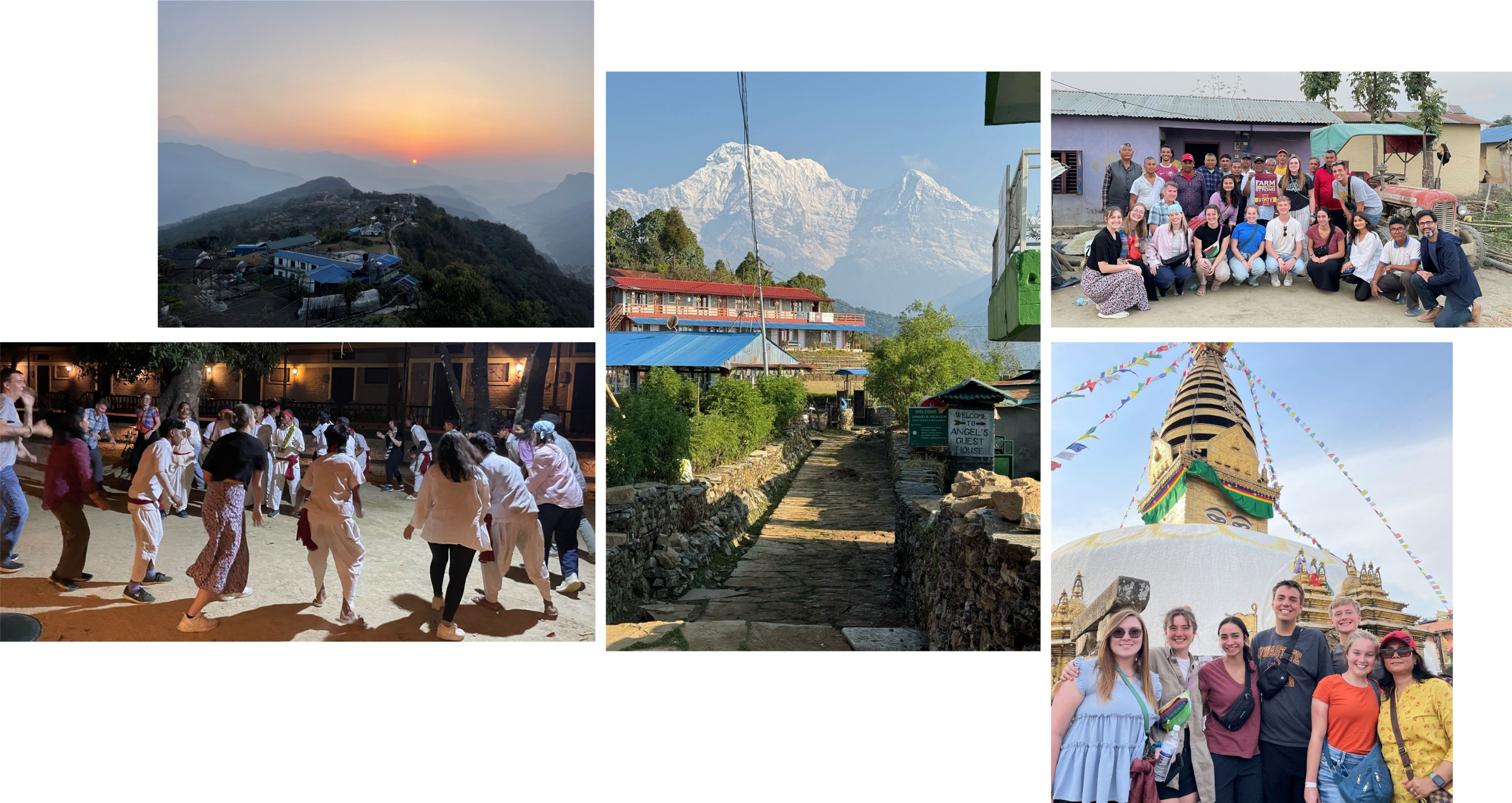
The goal of the Nepal Learning Lab is to give students the ability to understand the linkages between traditional agriculture, ecosystem change, women’s issues, and development agencies. We focus on South Asian food security and international trade, co-existence of indigenous knowledge and Western technology adoption, rural human capital and infrastructure challenges, and community social systems related to gender and caste.
Nepal Learning Lab
Short-stay programs will occur during spring break (mid to late March) or winter break (late December to mid January). The length of stay is 11-16 days.
Empowering Rural Nepal Through Environmental and Women’s Entrepreneurship (Ilam Program)
Agriculture, Ecosystems, and Social Change in Rural Nepal (Chitwan-Kaski Program)
- Available in Spring 2027. Last offered Spring 2025.
Long-stay programs are 4 weeks during late May through June. Field work is a major component,. There will be a collaborative learning lab project between ISU students, Nepali communities, and relevant NGOs to understand and potentially address longstanding issues in rural Nepal. There will also be visit to UN regional office in South and Southeast Asia. Preparation includes Nepali language lessons. This program would be ideal for students considering work in Peace Corps or USAID or any other U.S. foreign service offices.
Interdisciplinary Perspectives on Women, Culture, Agriculture, and Development in Rural Nepal (Achham-Doti-Bangkok Program)
- Available Summer 2026.
Our third objective is to connect and engage with high school students on the opportunities provided by study abroad; and on career opportunities with international organizations and federal agencies with a global presence. We will achieve this by doing multiple visits to Iowa high schools. Activities include presenting about the Nepal trip, discussing with former study abroad students, highlighting potential international careers, and disseminating brochures to guidance counselors on these topics.
Our goals are to: (i) make study abroad programs more accessible to college students; (ii) increase the number of college graduates with international experiences in South Asia; and (iii) build partnerships with communities, NGOs, and universities in Nepal.
The South Asia region is geopolitically crucial for the U.S., as it contains 24% of the world’s population and is home to India, a rapidly growing newly industrializing country and the world’s largest democracy. Although this region is fast developing, many areas suffer from food insecurity, rural poverty, and lower levels of human development. Getting a cross-section of American students engaged in South Asia today will strengthen future U.S. relationships in the region. It is imperative that people representing U.S. interests abroad actually represent the geographic diversity of our nation.
Our project is funded through a grant from the U.S. Department of State.
Principal investigators Dr. Ramesh Balayar and Dr. David Peters.
Refer to the press release and other awardees for more information.

